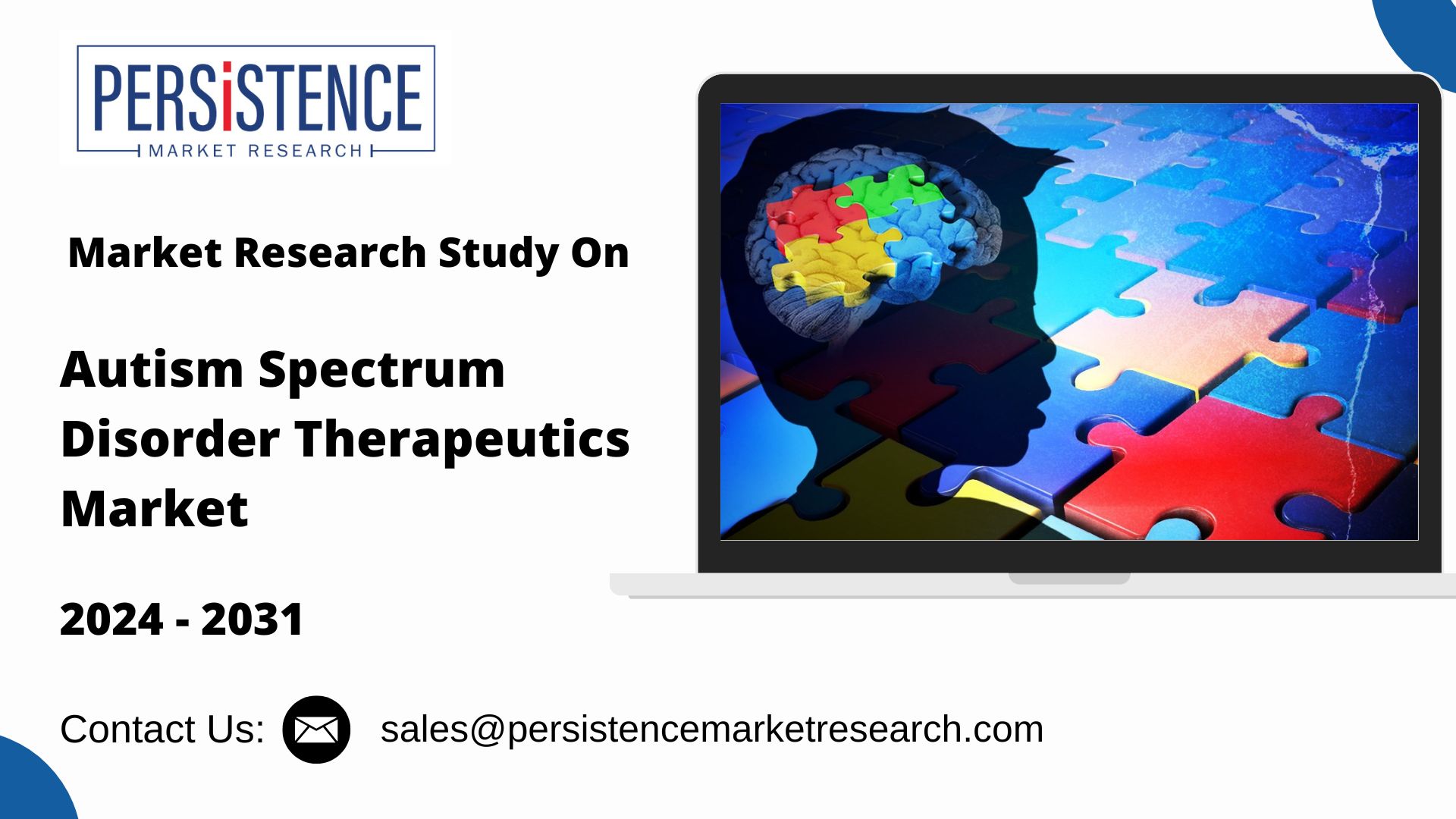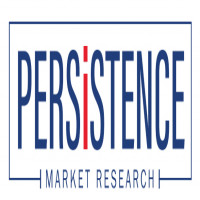Autism Spectrum Disorder Drugs Market Overview and Leading Medications

Strong 8k brings an ultra-HD IPTV experience to your living room and your pocket.
Autism Spectrum Disorder (ASD) is a complex neurodevelopmental condition that affects individuals in various ways, impacting communication, social interaction, and behavior. The rising prevalence of autism, coupled with the growing understanding of its genetic and neurobiological roots, has spurred innovation in drug development.
While there is no cure for ASD, medications aimed at managing the core symptoms and co-occurring conditions have become an essential part of treatment plans for many individuals. This article provides an overview of the autism spectrum disorder therapeutics market, highlighting key medications and trends shaping the industry's future.
Autism Spectrum Disorder: A Global Challenge
ASD affects an estimated 1 in 36 children in the United States, according to the Centers for Disease Control and Prevention (CDC). The global prevalence of ASD has been on the rise, reflecting not only greater awareness and improved diagnostic methods but also potential environmental and genetic factors. The disorder’s wide range of symptoms and varying severity levels mean that treatment options must be tailored to the needs of each individual, creating a diverse and growing demand for pharmacological solutions.
While behavioral therapy remains the cornerstone of autism treatment, pharmacological interventions are often employed to manage specific symptoms such as irritability, aggression, anxiety, and repetitive behaviors. Drugs that target neurotransmitter imbalances, brain signaling pathways, and behavioral issues offer hope for improving the quality of life for individuals with autism.
Current Market Landscape
The autism drugs market is still in its early stages but is rapidly growing, driven by the increasing demand for medications that address a broad spectrum of autism-related symptoms. The market can be divided into several segments based on the types of drugs available and their intended uses, including:
Symptom-Specific Medications: These drugs are designed to target specific symptoms associated with autism, such as anxiety, irritability, and aggression.
Core Symptom Medications: While there is no FDA-approved drug specifically for the core symptoms of autism (communication and social difficulties), there is a growing interest in developing medications that can directly target these aspects.
Co-occurring Condition Treatments: Many individuals with autism also experience co-occurring conditions, such as anxiety, attention-deficit hyperactivity disorder (ADHD), and epilepsy, which can be treated with existing medications.
The market for ASD drugs is expected to continue growing, with the rising awareness of autism, better diagnosis rates, and increasing demand for medications that offer more effective symptom control.
Key Medications in the Autism Spectrum Disorder Drugs Market
Several medications are currently used to treat the symptoms of autism. These medications aim to alleviate specific symptoms like aggression, irritability, and anxiety, improving the quality of life for individuals with autism and their families. Below are some of the leading drugs in the market:
1. Risperidone (Risperdal)
Risperidone is one of the most widely prescribed medications for managing irritability, aggression, and severe temper tantrums in children with autism. It is an atypical antipsychotic medication, and the U.S. Food and Drug Administration (FDA) approved it in 2006 for use in children aged 5-16 years with autism. Risperidone works by altering the action of neurotransmitters like dopamine and serotonin in the brain, helping to reduce symptoms of aggression and irritability.
While risperidone has proven effective for many individuals with autism, it is not without side effects, including weight gain, sedation, and metabolic issues, which can limit its use over the long term.
2. Aripiprazole (Abilify)
Another atypical antipsychotic, aripiprazole, is approved for treating irritability and aggression in children with autism. Aripiprazole was approved by the FDA in 2009 for use in children aged 6-17 years. This medication works by modulating the activity of dopamine and serotonin, similar to risperidone, but with a different mechanism that is thought to cause fewer side effects, such as weight gain or sedation.
Aripiprazole has demonstrated a favorable safety profile, and its use in managing behavioral symptoms of autism is supported by clinical studies, making it one of the most commonly prescribed medications for children with autism.
3. Selective Serotonin Reuptake Inhibitors (SSRIs)
SSRIs are primarily used to treat depression and anxiety, but they have also been explored for treating the co-occurring anxiety and obsessive-compulsive behaviors often seen in individuals with autism. Fluoxetine (Prozac), sertraline (Zoloft), and fluvoxamine (Luvox) are some SSRIs commonly used off-label in the treatment of autism-related symptoms.
While SSRIs do not address the core features of autism, such as social communication difficulties, they may help manage anxiety, depression, and repetitive behaviors, providing a more comprehensive treatment approach for individuals with autism.
4. Stimulants for ADHD Symptoms
A significant number of individuals with autism also exhibit symptoms of Attention-Deficit Hyperactivity Disorder (ADHD), including inattention, hyperactivity, and impulsivity. Stimulants such as methylphenidate (Ritalin) and amphetamine salts (Adderall) are frequently prescribed to manage ADHD symptoms in children with autism.
These medications work by increasing the levels of dopamine and norepinephrine in the brain, helping to improve focus and impulse control. However, the use of stimulants in individuals with autism must be carefully monitored, as they can sometimes exacerbate anxiety or other behavioral issues.
5. Melatonin for Sleep Disturbances
Sleep disturbances are common among individuals with autism, with many experiencing difficulty falling asleep or staying asleep. Melatonin, a hormone that regulates sleep-wake cycles, is frequently prescribed to help manage these sleep issues. While melatonin is not a treatment for the core symptoms of autism, it can significantly improve sleep quality, which in turn can help with mood regulation and overall functioning.
Melatonin is considered safe when used appropriately, though it is important for caregivers and healthcare providers to monitor dosage and timing to achieve the best results.
Emerging Drug Candidates in Autism Spectrum Disorder Treatment
While many of the drugs used for ASD are aimed at managing behavioral symptoms, there is an increasing focus on developing medications that directly address the core symptoms of autism, such as impaired social interaction and communication difficulties. Several innovative drug candidates are currently in clinical trials, with promising results that could shape the future of autism treatment.
Oxytocin-based Therapies
Oxytocin, often referred to as the "love hormone," plays a significant role in social bonding and emotional regulation. Research suggests that individuals with autism may have lower levels of oxytocin, which could contribute to social difficulties. As a result, researchers are investigating oxytocin-based therapies, including nasal spray formulations, as a potential treatment for improving social functioning in individuals with autism. Early clinical trials have shown some promise, though more research is needed to determine its long-term efficacy.
NMDA Receptor Modulators
Another promising class of drugs are NMDA receptor modulators, which regulate the activity of neurotransmitters involved in learning, memory, and synaptic plasticity. Preliminary research suggests that these drugs could help improve social and communication skills in individuals with autism. Several NMDA receptor modulators are currently undergoing clinical trials, with some already showing potential in managing core symptoms of autism.
Market Trends and Future Outlook
The autism drugs market is expected to see continued growth as more effective treatments for both core and co-occurring symptoms of autism are developed. Key trends shaping the market include:
Personalized Medicine: As research advances, there is a growing emphasis on personalized treatments that target the specific biological underpinnings of autism. Genetic testing and biomarker discovery are expected to play a crucial role in tailoring therapies to individual patients.
Increased Investment: With growing awareness of the need for new autism treatments, investment in the autism drug development sector is increasing, leading to more drug candidates entering clinical trials.
FDA Designations: The U.S. FDA has provided incentives such as Fast Track and Orphan Drug designations for several autism drug candidates, which could accelerate the availability of new treatments.
The future of the ASD drugs market looks promising, with ongoing research offering hope for more effective treatments that can directly target the core symptoms of autism, improving the quality of life for individuals with this complex disorder.
Note: IndiBlogHub features both user-submitted and editorial content. We do not verify third-party contributions. Read our Disclaimer and Privacy Policyfor details.



